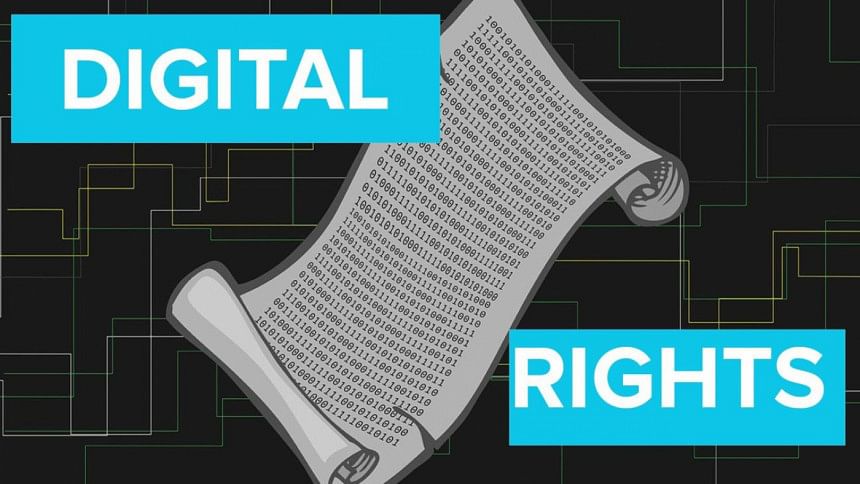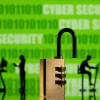Rethinking our digital priorities

On April 14, 2016, the European Union adopted the General Data Protection Regulation (GDPR) with the aim of giving control to people over their personal data, recognising certain "digital" rights that individuals are entitled to regarding how their personal data is collected and used. These digital rights include, among others, the rights to: information, access, rectification, restricting on processing and erasure. That internet users have inviolable rights—and it is now being argued that access to the internet itself is a fundamental human right—may seem odd to us. Of course it does; in a digital culture where blocking and banning is the norm, where access can be snapped at a moment's notice, and one needs to think of a hundred possible repercussions before posting anything online, the idea of digital rights, is not even part of our discourse.
At the heart of the concept of the GDPR's digital rights is the concept of privacy over personal data. Access Now, an international NGO that advocates for digital rights globally, defines personal data as "any information relating to you, whether it is related to the private, professional, or public life." With staggering amounts of data available online to corporations and governments, users' control over how that data is used is next to nil almost. And it matters—from the use by internet giants of one's data for targeted advertising or selling to advertisers, to governments' use for mass surveillance, the implications are chilling. Yet, according to the United Nations Conference on Trade and Development (UNCTAD), only about 58 percent of countries worldwide have data privacy laws. This is in sharp contrast to the 72 percent of countries which have cybercrime laws. And although it may seem that the concerns about the right to privacy, especially online, are a relatively recent phenomenon, the history of privacy laws actually goes back at least to the 1980s.
In our national discourse, legislation regarding the digital world has mostly focussed on empowering the state and not individuals. Surrounded by computers and immersed in the internet, we tend to forget how revolutionary the invention of the World Wide Web was in the course of history. In 2011, in the UN General Assembly, the Special Rapporteur on the promotion and protection of the right to freedom of opinion and expression in his report went as far as to say that internet was a medium which enabled the "discovery of truth and progress of society as a whole." Terming the right to freedom of expression and opinion as an "'enabler' of other rights including economic, social and cultural rights," the Special Rapporteur described the internet as a "catalyst" of that crucial fundamental right to free speech. And all of these rest on the unique nature of the internet: its speed, accessibility and the degree of anonymity it provides. Whether one looks at it from the angle of the accessibility to knowledge or development of human rights, the internet is truly revolutionary. And it is because of this revolutionary nature that the debates over how much control states can exercise over the internet has become so heated in this decade.
Freedom House reports that 2018 saw the 8th consecutive year of global internet freedom decline. Countries around the world continue to stock up with the newest technologies for "managing" how and what can be accessed online. In the same year, 17 governments approved or proposed laws restricting online media on various grounds. The reductionist debate over online freedom continues to be framed over concerns of "national security"—as if privacy and security are mutually exclusive.
For Bangladesh, "digital" has become the by-word for development on one hand, while on the other, indiscriminate blocking or restricting of access has almost become the norm. Recently the country implemented a ban on thousands of websites to block "pornographic" content—something no one can seemingly argue with. However, the issue is not as simple as it is made to appear; given the nature of the internet, the same site can host content flagged as immoral, while also containing content of immense educational value. Users in Bangladesh are unable to access certain blog sites, and for a time were even unable to access Google Books and the immensely popular site Reddit! If one were to take the line of argument for banning websites such as Reddit to its logical conclusion, even Wikipedia should be on the list of blocked websites. That is absurd, especially given that the state's prerogative is not moral monitoring. Of course, as every official knows, any digitally native user can get around any blocks. But the net effect of such restrictions on sites for ambiguous intents is what the Special Rapporteur called a "chilling effect"—a fear of exercising the right to free speech.
The Special Rapporteur's proposals at the General Assembly cited before make a compelling argument relevant here: that there are certainly cases where restriction of access is legitimate. But, the report reads, the criteria have to be narrow, must be lawful and subject to challenge, and not be disproportionate to its aims. It reads, that barring child pornography, any other restriction is usually unwarranted. The report, in light of the UN'S International Covenant on Civil and Political Rights, sets out when it might be legitimate to restrict content: when it can curtail another's rights, poses a threat to national security, and can incite violence; but the action must also be the most "restrictive means" of achieving the aim. The report also adds, "Even when justification is provided, blocking measures constitute an unnecessary or disproportionate means … as they are often not sufficiently targeted and render a wide range of content inaccessible beyond that which has been deemed illegal," reads the report. So, if a site like Reddit does even contain immoral content, blocking out all the other content which it provides and which are not illegal, renders such a block too broad and indefensible. And, "while the protection of children from inappropriate content may constitute a legitimate aim, the availability of software filters that parents and school authorities can use to control access to certain content renders action by the Government such as blocking less necessary and difficult to justify," reads another part of the report.
Of course, moral concerns are sometimes the fig leaf covering concerns over critical views, which are of course harder to justify in democracies which formally uphold freedom of expression. Criticism, under our wide and ambiguous definitions end up being construed as anti-state or seditious. In this context, even talking about digital rights seems absurd. But it is a discussion we must have. The Digital Security Act was one chance where we could have actually addressed this; indeed that is what the law should have been about. Like the GDPR, it could have empowered citizens with certain rights over their personal data, how they can be collected, how long they can be stored and in what manner, and legal recourses one could take if those rights are violated. It should have set up infrastructure and protection standards that governments and corporations must follow when collecting data. Neither global corporations nor states should be able to use one's data in a way one is not comfortable with. This could be anything from mobile operators selling data to advertisers for targeted marketing to how personal information, say for the NID, is stored.
On one hand we have the immense possibilities that the internet provides—access to news, books, articles, discussions with people with similar interests—at our fingertips. The possibilities that not even Sir Tim Berners-Lee could have foreseen. On the other, we see increasing control about how, when and what users can access, and a situation where one has very little control over one's data. In order to truly make the "Digital Bangladesh" digital, we need to start with getting rid of our constant policing over the internet and empower citizens with the rights needed to be safe and in control.
*The published version of this piece stated that Reddit was still blocked. It is now accessible. We regret the error.
Moyukh Mahtab is a member of the editorial team, The Daily Star.










Comments